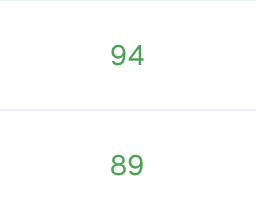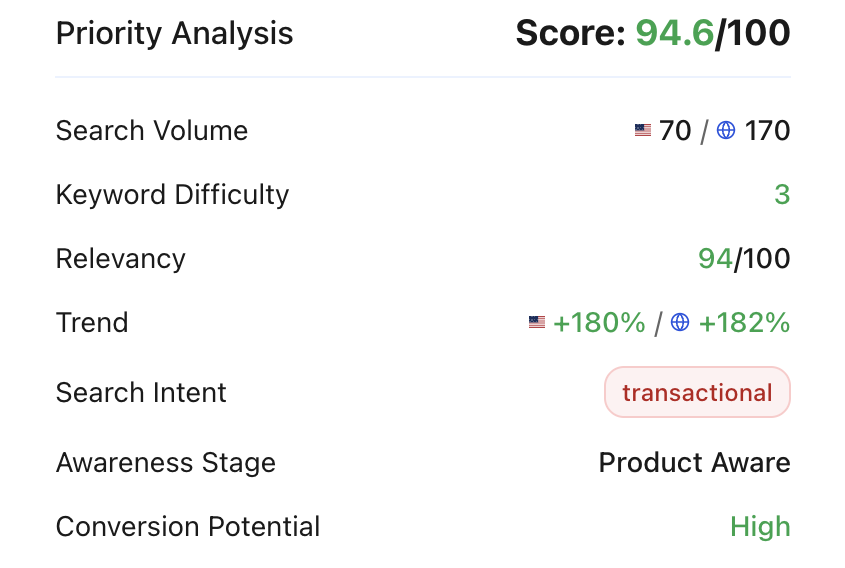Free Yourself from Time-Draining
Spreadsheet Work
Automate keyword research so you never have to sift through, filter, or organize keywords from scratch again.
Why Should You Use RankUp for Keyword Research?
Speed
If you're optimizing for speed, why not use the fastest end-to-end keyword research workflow available? Nowhere else can you get 7 days of work done in just 2 hours.
Output Quality
Speed is great, but quality is non-negotiable, which is why it's our #1 priority. With RankUp, the most you'll ever need to do during review is reorder a few clusters and skip some less relevant keywords.
Fully Built Automations
No need to build, test, or manage automation workflows yourself - we've already done it and continue to do so.
Convenience
No clutter, no clicks too deep - just a clean UI that makes editing and managing clusters feel effortless.
How Does RankUp's Keyword Clusters Workflow Work?
Mapping out business offerings
Each workflow will be completely personalized to the given website.
It starts off by crawling the site and mapping out the business's products/services.
This serves as a foundation for all other workflow steps.
Competitor research
Based on what the workflow has learned about the site's offerings, it will find relevant SERPs, gather a list of competitors and distill them down to a list of highly direct or at least highly relevant competitors.
Keyword research
Next we aim to find all possible keywords for the niche:
- • Top competitors' keywords
- • Finding keywords based on business offerings
- • Brand comparison keywords (SaaS)
At this point, usually over 10,000 keywords are found and processed.
Clustering and filtering keywords
Keywords are then clustered, grouping similar topics together to help you build topical authority, while also being filtered to exclude keywords not relevant to the business.
Similarity grouping
Similarity grouping prevents you from writing multiple content pieces for keywords that could be covered with one. (a.k.a keyword cannibalization)
We achieve this by comparing the SERPs of each keyword and combining this with our ML / LLM algorithms.
This provides an output of primary keywords with similar keywords grouped under them as secondary keywords.
Final processing and prioritization
Finally, the workflow goes through a series of scoring, filtering and labelling steps, refining the output and prioritizing keywords to present to you the best 'bang for buck' opportunities first.
This includes:
- • Relevancy scoring - scoring keywords against the site's business context, to measure how well they contribute to topical authority.
- • Search intent and awareness stage labelling - identifying high-awareness commercial content.
- • Priority scoring - bringing the most relevant keywords, with the highest commercial value and best volume/trend metrics to the top.
Keyword Clusters Monthly Updates
Never miss out on new high-potential keywords again. Each month, RankUp updates your clusters with new opportunities, reevaluates Priority Scores, and tells you exactly why each score changed.
Built for All Your Needs
Looking for a more convienent way to build a content plan? Check out RankUp's Content Plan Builder!
Continue
